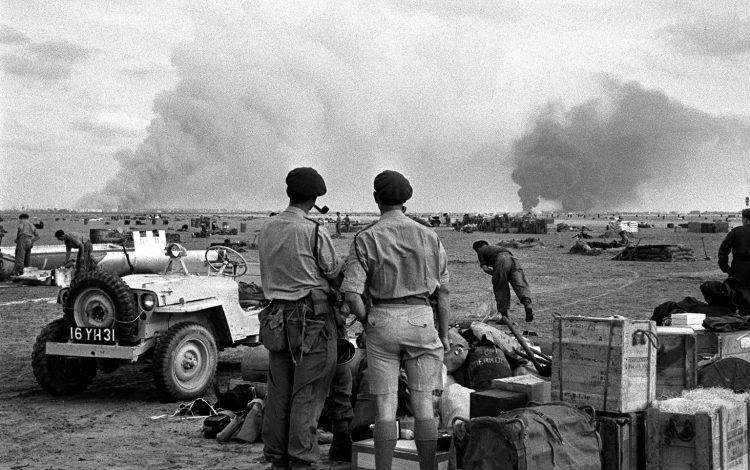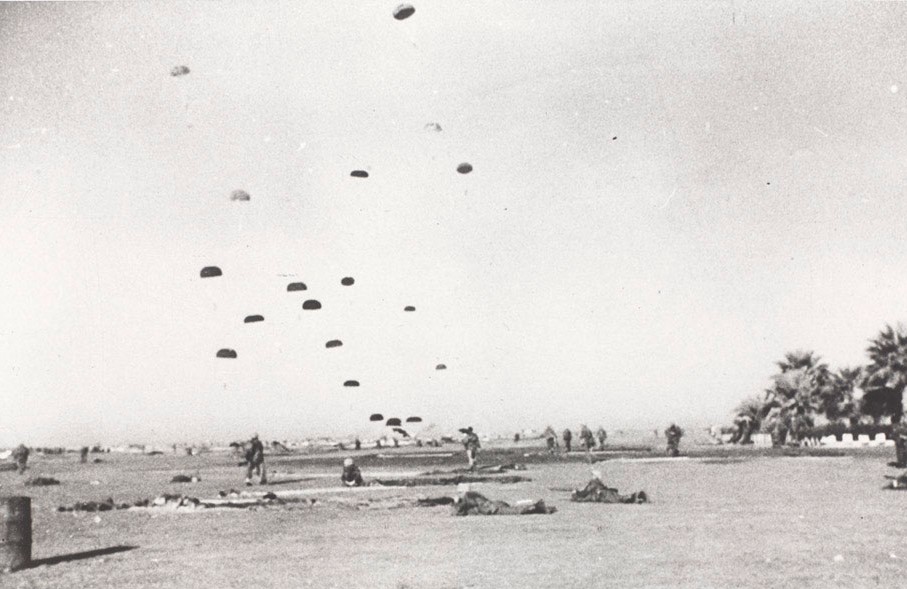Resolving the Suez Crisis:
Successful Debate & Diplomacy in the Cold War
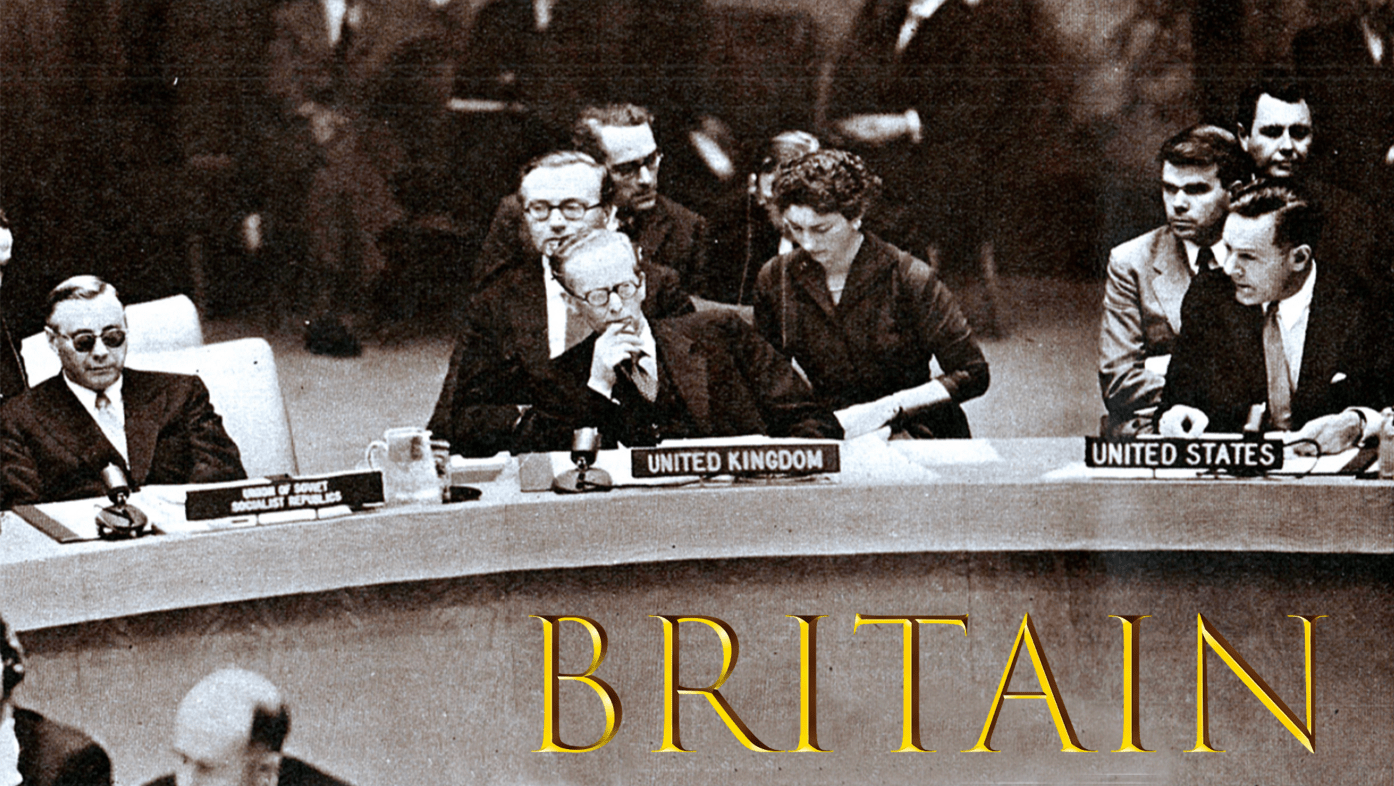
UN General Assembly, 1 November 1956, Past Daily.
British Dilemma

Anglo-Egyptian Treaty negotiations, 1936, Wikimedia.
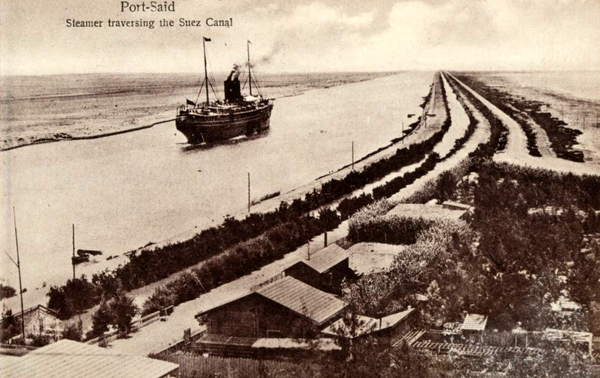
Steamer moving through Port Said under British Control, Revolution Egypt.
British troops previously occupied the Suez Canal to protect Britain's financial and strategic interests, which required Middle Eastern oil. Iran's nationalization of oil forced Prime Minister Eden to make a difficult choice: renegotiate the Anglo-Egyptian Treaty, or take military action, despite pressure from the United States demanding neutrality. Eden strongly desired to dictate the terms of the agreement to remain a great power, whereas Dulles wanted legal and fair reasons to control the canal.
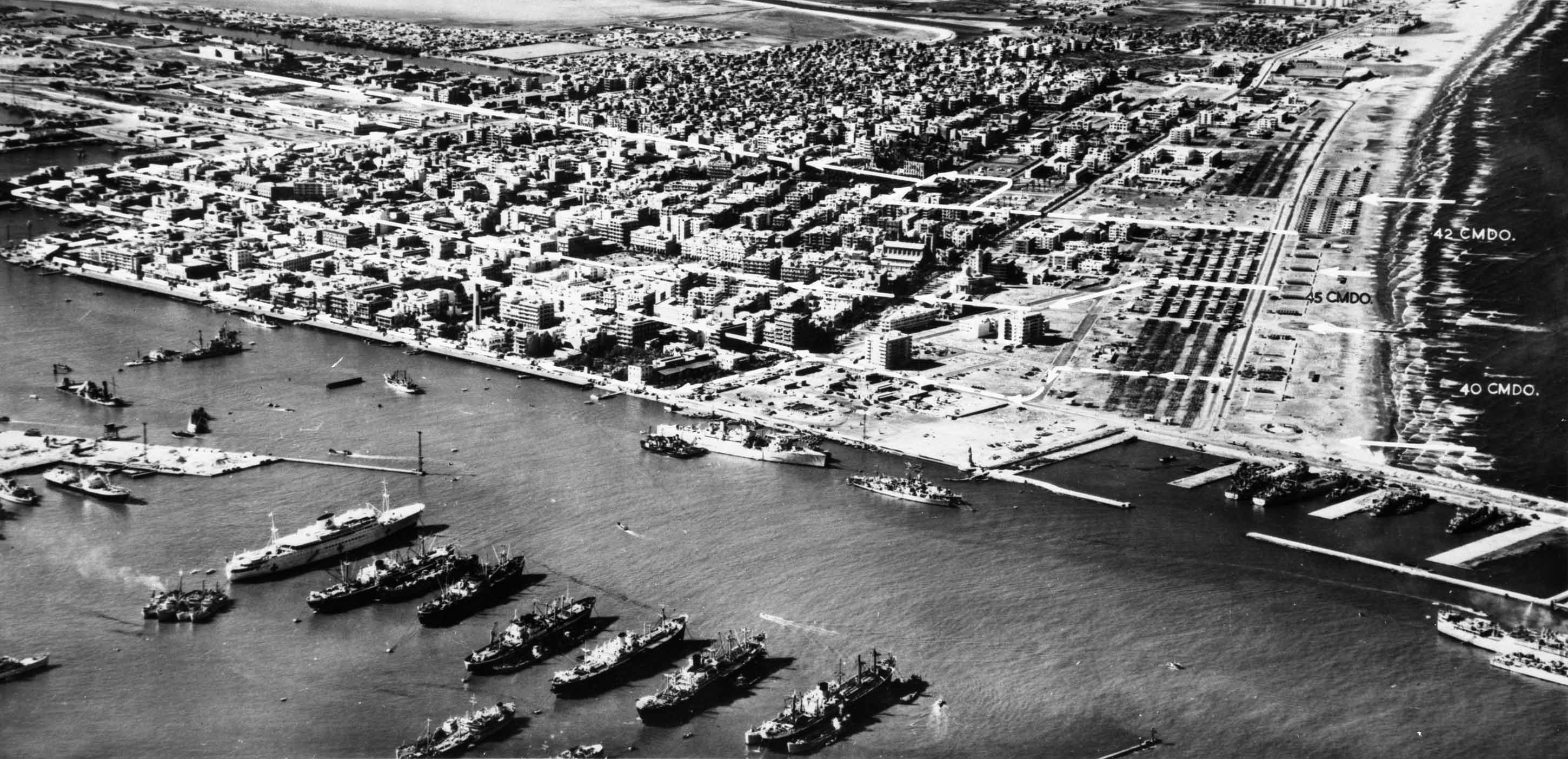
Aerial view of the Suez Operation, 1956, UK National Archives.
Military Invasion
“There is no doubt in our minds that Nasser, whether he likes it or not, is now effectively in Russian hands, just as Mussolini was in Hitler’s. It would be as ineffective to show weakness to Nasser now in order to placate him as it was to show weakness to Mussolini.”
~ British Prime Minister Sir Anthony Eden in a message to Eisenhower, Kissinger Diplomacy
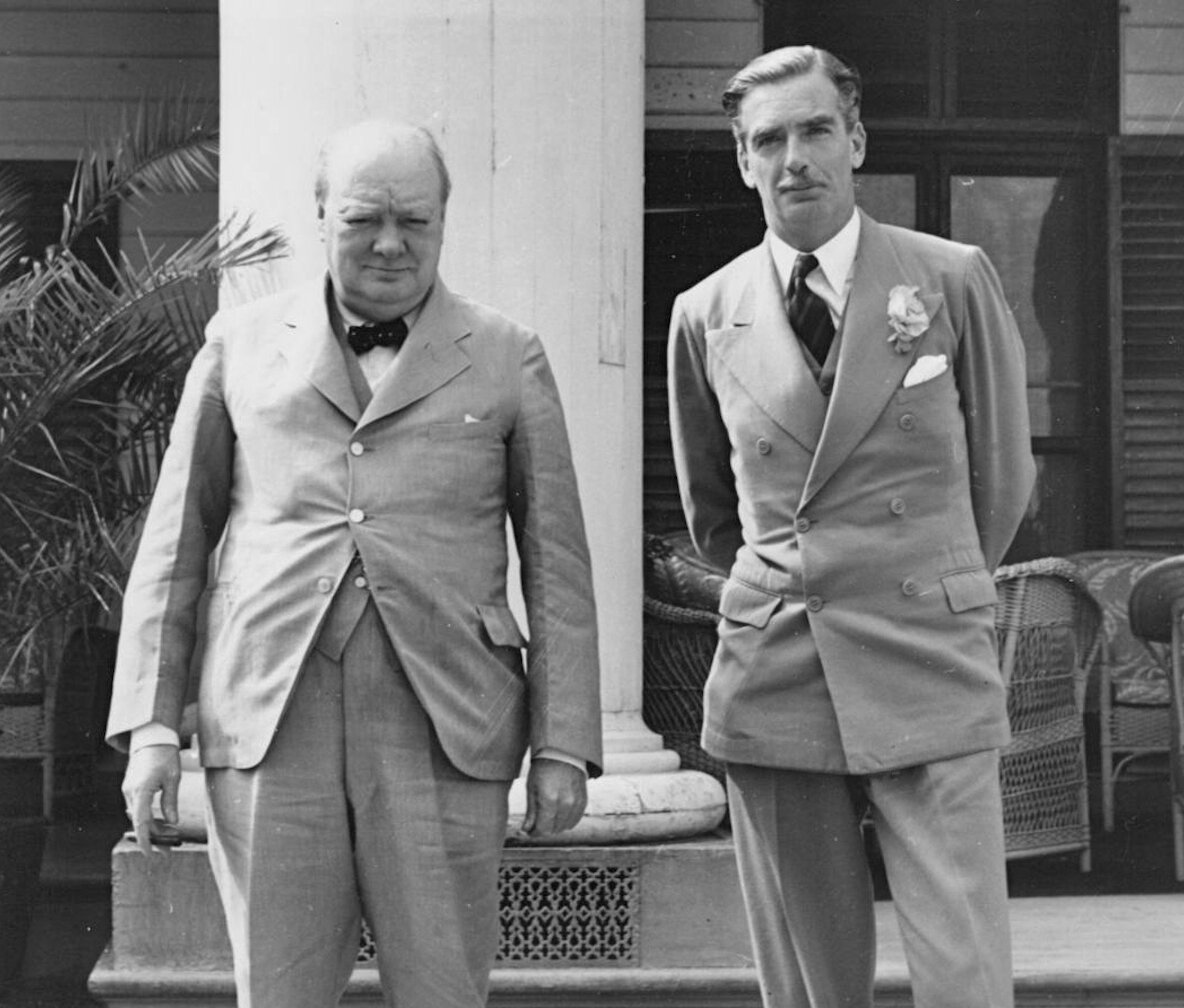
Winston Churchill with Sir Anthony Eden, Anglotopia.
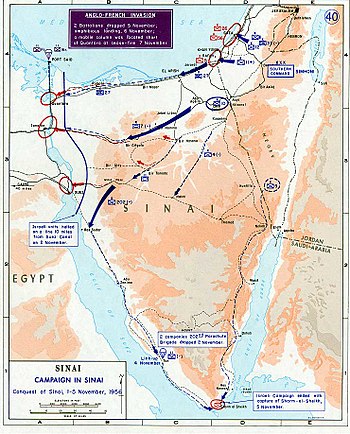
Sevres Protocol: Anglo-French Invasion, Wikipedia.
Britain chose military power, and in October 1956, they met with French and Israeli Prime Ministers in Sévres, France to draft the Protocol of Sévres. Britain and France would issue an ultimatum for Israel and Egypt to withdraw from the canal, and when Egypt refused, Britain and France would invade.
45 Royal Marine Commando preparing a grenade, Imperial War Museum.
6th Royal Tank Regiment disembarks HMS PUNCHER at Port Said, Imperial War Museum.
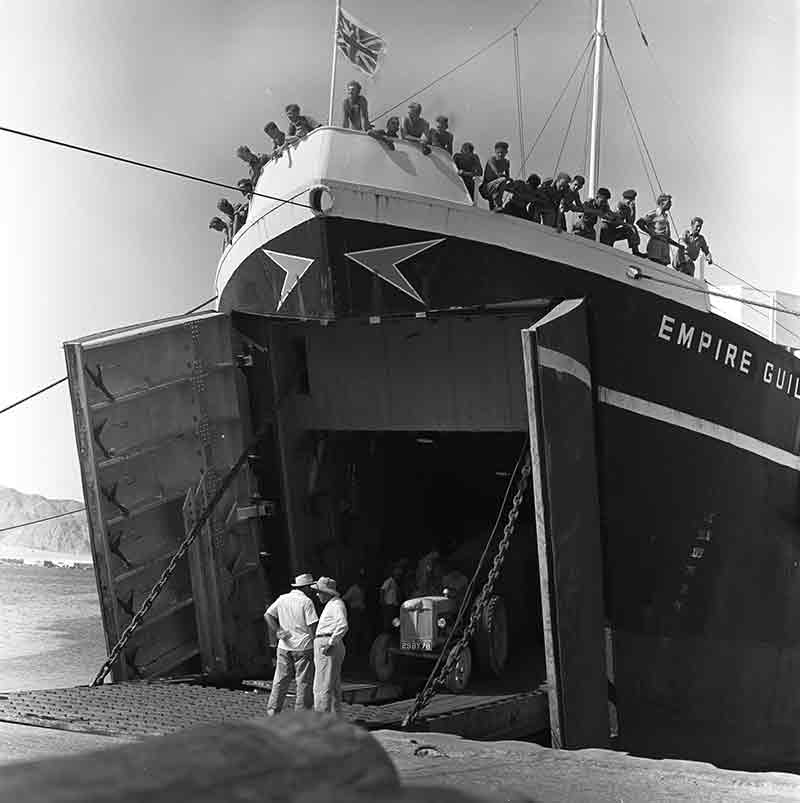
British capturing Port Faud and Fort Said, 1956, Bock-Schroeder.
Lieutenant General Sir Hugh Stockwell, 1956, UK National Army Museum.

Caricature by Israeli Minister of Defense Drayan: England (father) and France (mother) telling Israel (child) to go to the Suez Canal, JSTOR.
"If Nasser were to get away with his action, we should lose the pipelines and our oil supplies. Our economy would then be slowly strangled... Nasser was a paranoiac and had the same type of mind as Hitler... Our object was to achieve a reasonable settlement, by peaceful persuasion if this were possible. If not... we would have to assert the right of free passage through the Canal by force if necessary."
~ Eden to Dulles, 1 August 1956, Dawn Over Suez
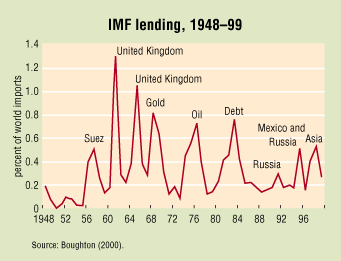
International Monetary Fund Lending to Britain after the Suez Crisis, IMF.
Failures of Undiplomatic Force

British Royal Navy planes flying during the Suez Crisis, TheColdWars.
“An act of disastrous folly whose tragic consequences we shall regret for years.”
~ Hugh Gaitskell, Leader of British Labour Party, Epic History.

Hugh Gaitskell, Nolstagia Central.
Although Britain succeeded militarily, their attack ultimately ended as a political disaster. Two days into the invasion, the USSR intervened, threatening Britain with nuclear weapons, which humiliated Eden and his government.
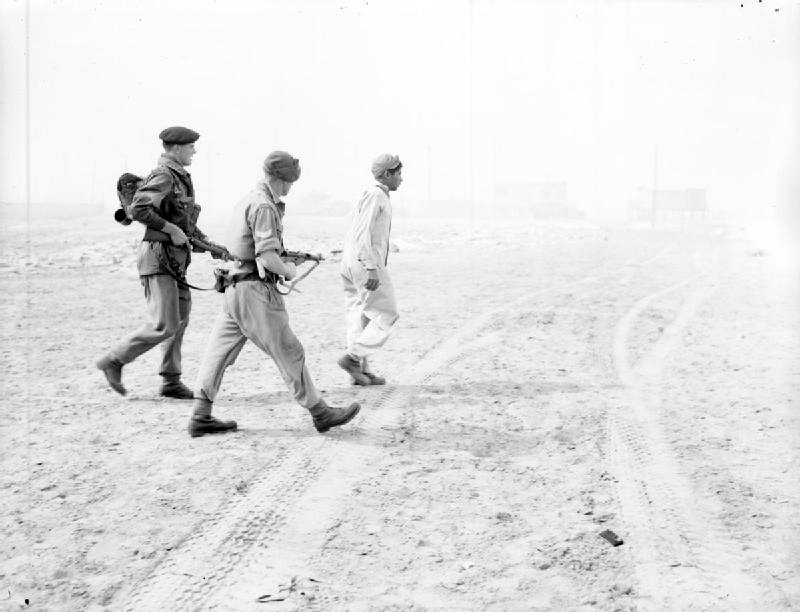
British Paratroopers Marching Egyptian Prisoner into captivity, MilitaryHistoryNow.
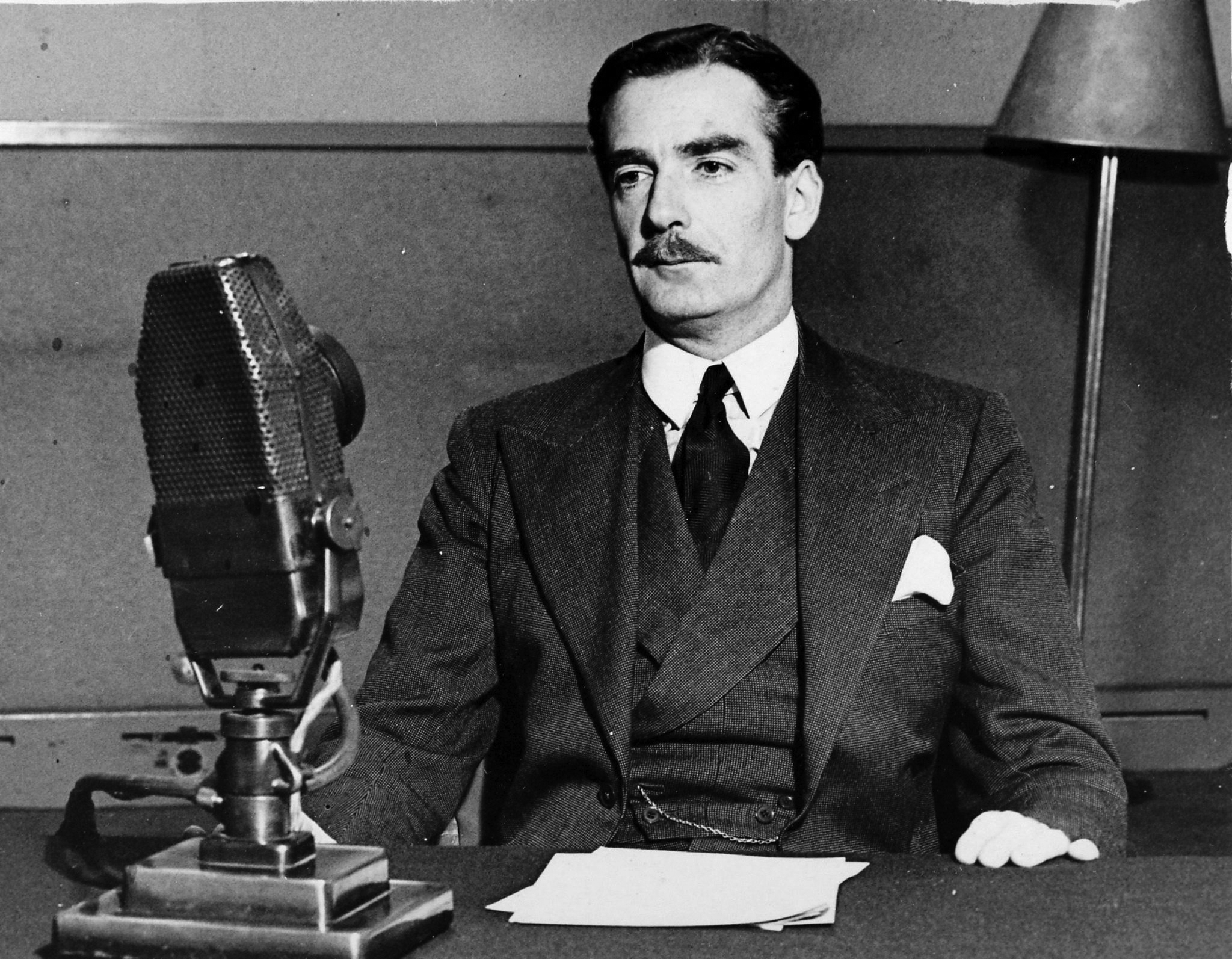
British Prime Minister Sir Anthony Eden resigns after less than two years, 9 January 1957, The National.
Soviet cartoon mocking British and French diplomatic fiasco, Ranker.
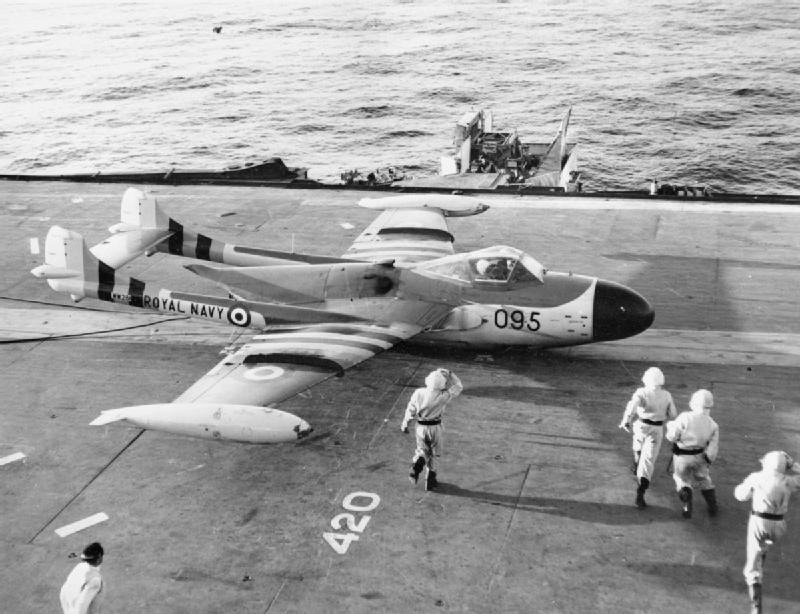
Damaged British Sea Venom on the HMS Eagle, Wikipedia.
